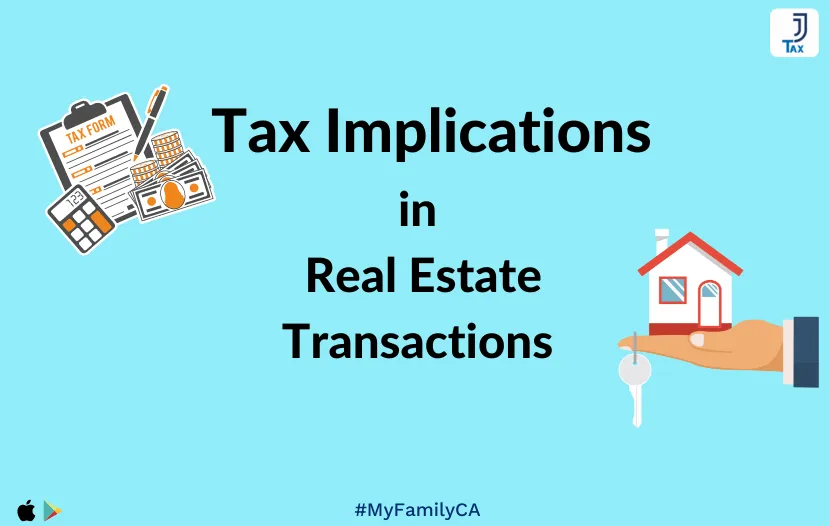Discover the Tax Implications of Buying or Selling Real Estate

Aspiring to buy or sell a property in India? Understanding the tax implications is just as important as finding the right location or negotiating the right price. From capital gains tax to property tax, GST, stamp duty, and rental income — here’s a clear and updated guide to help you make informed real estate decisions.
Whenever you sell a property in India, the profit you make — after deducting your purchase price and related expenses — is subject to capital gains tax. The tax rate and treatment depend on how long you have held the property.
Short-Term Capital Gains (STCG):
If the property is sold within 24 months of purchase, it is treated as a short-term capital asset. The gains are added to your total income and taxed as per your applicable income tax slab rate.
Long-Term Capital Gains (LTCG):
You can claim exemptions under Section 54, 54EC, or 54F by reinvesting the gains in another property or specified bonds.
Property tax is a recurring tax levied by the local municipal authority on property owners. The amount varies depending on factors like the property’s size, location, usage (residential/commercial), and the local government’s valuation method. Most municipal bodies calculate property tax based on the Annual Rental Value (ARV) or Unit Area Value (UAV) system.
Rates generally range between 5% to 20% of the ARV, depending on the city.
Property tax payments can be made annually or in installments. Timely payment often attracts early-bird discounts, while delays may incur penalties or interest.
The Goods and Services Tax (GST) applies primarily to the sale of under-construction properties or those that have not yet received a completion certificate. Properties sold after completion or resale properties are exempt from GST.
|
Property Type |
GST Rate |
Input Tax Credit (ITC) |
|
Affordable residential (carpet area ≤ 60 sq. m. in metros, ≤ 90 sq. m. in non-metros, value ≤ ₹45 lakh) |
1% (no ITC) |
Not allowed |
|
Non-affordable residential (under-construction) |
5% (no ITC) |
Not allowed |
|
Commercial property (under construction) |
12% (with ITC) |
Allowed |
|
Completed / resale property |
No GST |
Not applicable |
Developers cannot claim input tax credit on materials and services for residential projects under the 1% and 5% schemes. If the property is purchased purely for commercial leasing, and GST is collected on rent, the buyer can usually claim ITC against GST on rental income.
Stamp duty is a one-time charge imposed by state governments during the registration of property transactions. It legally validates the ownership transfer.
If you earn rent from your property, it is taxable under the head “Income from House Property”.
Taxable Amount:
The Net Annual Value (NAV) = Gross rent received – Municipal taxes paid.
You can claim a standard deduction of 30% on the NAV, and interest on a home loan (if applicable).
For example, if you earn ₹5,00,000 annually in rent and pay ₹50,000 in municipal taxes, your NAV is ₹4,50,000.
After a 30% standard deduction (₹1,35,000), your taxable rental income becomes ₹3,15,000.
This is then taxed as per your income slab.
If you rent out property for commercial use and the annual rent exceeds ₹20 lakh, you may also be required to register for GST and charge 18% GST on rent.
While taxes may not be the most exciting part of real estate, understanding them is key to making smarter financial decisions. Whether you’re buying, selling, or renting property, being aware of your obligations under the Income Tax Act and GST laws can save you from costly mistakes later. Stay informed, stay compliant, and let your real estate journey build wealth — not worry.

